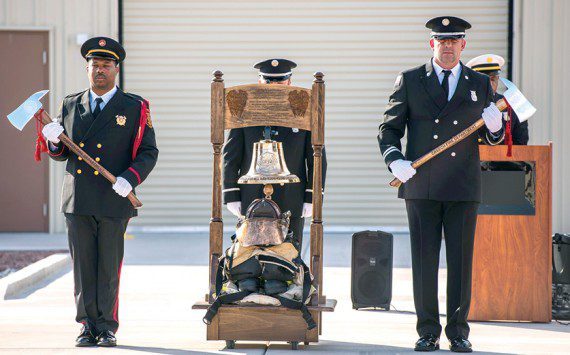NELLIS AIR FORCE BASE, Nev. — I grew up on the plains of northcentral Ohio where winters can be harsh. So I thought I knew a lot about driving in harsh conditions. But most of the roads around my town were flat as a pancake with sometimes not a single curve for miles. I had a much to learn.
When freshly out of college, I took a job up in the hills of central Pennsylvania. I awoke one bright chilly beautiful morning to find a layer of new-fallen snow. I jumped in my new car, and headed down route 879 that meanders next to the Susquehanna. I could see intermittent ice on the road and knew I should drive with caution. But then I came upon a slow-vehicle, and then upon the only passing zone for the next six miles. For a moment, I questioned whether I should overtake, but thinking more of my only chance to pass and the potential time I could save, I made a decision to pass when the lane doubled heading up the hill, and did so without incident.
If I’d stayed behind this slow poke, I probably would have been just fine. But instead, I now headed down that hill trying to stay off my brakes. As I came to the bottom I also came to a bridge which, of course, was icy and on a slight curve, and had a sign nicely noting this for me. As soon as my wheels reached the bridge they hit the ice and then lost traction with the road and car started to skate. With no time to think, I hit the brakes. So I continued into the spin instead of out of it, and into the barricade of the bridge mere feet short of Shawville Gas and Grocery. I damaged the car, but not so much I couldn’t continue on my way. While backing off the barricade, who puttered by, slowing to see if I was OK? None other than the driver I had just ill-advisedly passed. I said I was fine (thank God) and he could go on. Yes, the tortoise beat me to town that day. Well, I drove it to body shop, but I never drove it out.
That day the driving lesson to not mash the brakes on a skid went from the existential to the empirical, from my head to my heart. I experienced why I had learned this lesson! The voice of my father (a career police office and expert driver) echoed in my ears, “Only tap the brakes, my son!”
Now, before you mistake this article as sponsored by the ground safety office, let me ask if you’ve ever found yourself skidding down your hill, across your ice, out of control, scared for your life? About eight years ago, I found myself in similar dire straits while spending some not so quality time up in the Hindu Kush. There were many crisis moments where this principle kept me from freaking out, allowing me my sanity and my soul, and my mind. By maintaining spiritual, mental, emotional and physical control, I was instead often able to lead as an officer should and to provide critical pastoral care as a chaplain should. Some of these “events” rattled my head, neck, and brain in ways the amazing professionals at our 99th Medical Group are still helping me discover, such as occupational therapist, 1st Lt Kelli Laramee and speech pathologist Janelle Anderson, along with mental health, neurology, physical therapy and more. While working on one of the many exercises to learn new ways of remembering, Mrs. Anderson told me to pump the brakes. That’s when this article came to my mind.
No doubt you’ve heard this from John Ray’s 1678 proverb collection: “Haste makes waste, and waste makes want, and want makes strife between the goodman and his wife.”
Tapping the brakes brings not just greater clarity to your present, but greater enjoyment along with it! Merle Haggard understood that and taught all of us old fogies to pray. One day at a time, sweet Jesus … yesterday’s gone and tomorrow may never be mine … You can only enjoy the present. Maybe that’s why they call it that. It’s your present (moment) where life is lived.
Now, consider the benefit of this brake tapping practice: It might bide us some precious time to move from a thoughtless response we might have to live with forever to a thoughtful one. I wish our minds came programmed with an automatic breaking system (ABS)! Building a mental ABS helps us remember, realign, redirect, and reconsider. It will help us avoid or at least diminish the risk of panic attacks to simply wasting time, and most importantly to me, to live with joy.
So whatever is going on in that head of yours now that may be delaying, distracting, or even depressing you, is also denying you the joy of living. The joy of this moment. Life’s too short to be wasted in yesterday’s sadness or gladness, or in your dreams or worries about tomorrow. Stop and Smell the Roses (Ringo Star, 1981) at every opportunity. In the middle of every rush, stop counting the seconds, and let the seconds count. Instead of looking to get more time, look to get more out of it. It’s your gift. It’s your life. Tap the breaks and slow down today. The chances you’ll remember today fondly will skyrocket. You’ll remember its sun rise and sunset, the good and bad talks you had at work, what got checked off the list, that great lunch at the Club, and the newfound joy of a normal day.











